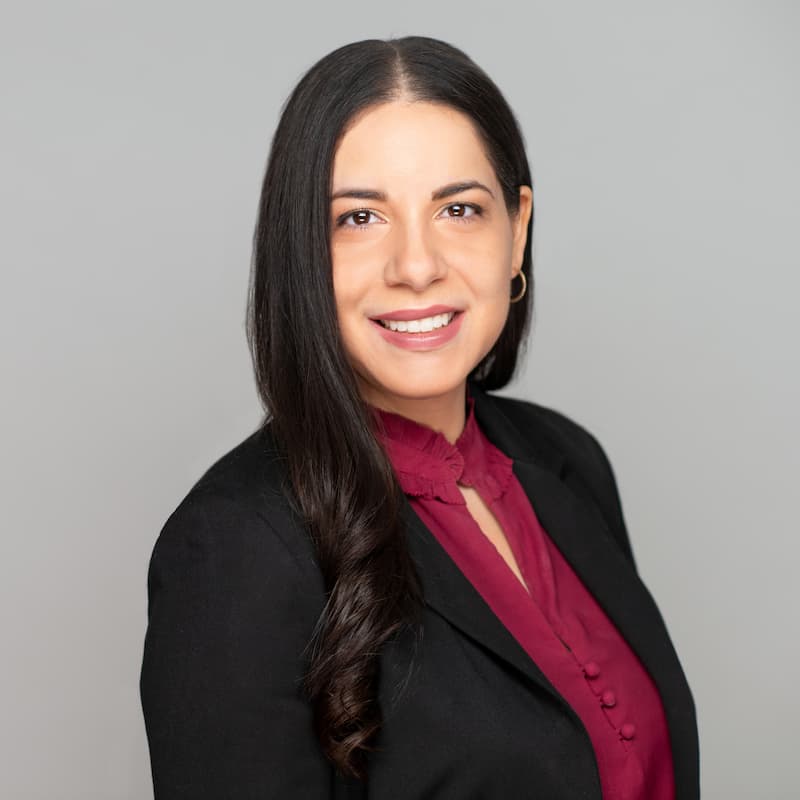 Credit: Maskot / Maskot / Getty Images
Credit: Maskot / Maskot / Getty Images
Accounting involves recording financial information, preparing documents relating to finance, and analyzing financial records. Public accounting focuses on financial documents that clients must disclose to the public, such as tax documents.
Although tax returns are not open to the public, they fall under the public accounting umbrella due to the legal requirement of disclosing financial information to the government. Public accounting also includes filing corporations' records with the Securities and Exchange Commission (SEC) and potential investors.
Public accountants work for individuals, businesses, or the government and may specialize in areas such as taxation, consulting, or auditing. Public accountants who meet certain qualifications can seek licensure to work as certified public accountants (CPAs). This page covers important information about CPA careers, including responsibilities and qualifications.
Certified Public Accountant Duties
- Examine Financial Records: CPAs analyze financial records to prepare tax returns, create budget reports, and conduct audits for their clients. These accountants ensure that financial records comply with federal, state, and local laws and regulations.
- Calculate Tax Returns: Public accountants often prepare business and individual tax returns. They compute total taxes owed, file appropriate forms to claim deductions, and ensure that clients make full, on-time payments.
- Prepare Financial Documents: Accountants prepare many types of financial documents, including tax returns, budget reports, and financial statements. They also create quarterly earnings reports for businesses and accounting records to track expenses and profits. CPAs must ensure that financial documents follow reporting and procedural standards.
- Conduct Forensic Examinations: Public accountants who specialize in forensic accounting conduct audits and investigations to uncover financial crimes like fraud. These professionals analyze financial documents to uncover potentially criminal activity, investigate contract disputes, and provide accounting expertise for law enforcement officials.
- Advise Clients on Financial Decisions: Many public accountants provide financial management advice for businesses and individuals. CPAs may analyze financial documents to make recommendations for improving operations or lowering tax liabilities. Some public accountants help clients plan for long-term financial goals, such as retirement.
- Manage Financial Information: CPAs must effectively manage financial information for clients, including reviewing accounts to identify discrepancies. CPAs provide tax management services to corporations and individuals.
Key Hard Skills for CPAs
- Analytical Skills: CPAs need strong critical thinking abilities to evaluate financial data and documentation, identify issues, and provide solutions to clients and employers.
- Computer Skills: The CPA job description typically includes daily computer use and proficiency in specialized software programs like Excel, QuickBooks, and Sage.
- Mathematical Skills: CPAs use math skills to analyze and interpret financial figures and data. While software often handles mathematical tasks, public accountants still must know how to calculate averages, percentages, and margin and mark-up changes.
- Business Knowledge: Knowing how businesses operate allows CPAs to provide big-picture perspectives and advice to employers and clients. Business skills may also help CPAs advance in the workplace.
Key Soft Skills for CPAs
- Communication: CPA jobs require daily communication with clients, managers, and coworkers. These accountants must know how to listen to client concerns, present technical information clearly and concisely, and share results in meetings and reports.
- Organization: CPAs work with dozens of clients, many types of financial documents, and strict deadlines. Strong organizational skills allow these accountants to keep track of work and safeguard clients' sensitive information.
- Problem-Solving: Businesses and individual taxpayers can experience many different financial problems. CPAs with strong problem-solving skills can identify these issues, offer valuable perspectives, and propose possible solutions.
- Attention to Detail: Accounting and tax preparation mistakes can be costly for clients and businesses. CPAs must pay close attention to detail when examining figures, compiling data, and completing financial documents.
Top Online Master's
Explore programs of your interests with the high-quality standards and flexibility you need to take your career to the next level.
CPA Career Paths
Readers wondering "What is a CPA?" may think only of their local tax preparation professional — someone who sits behind a desk and files dozens of tax returns from January to April. A CPA career path offers many different avenues and destinations, with year-round work opportunities beyond tax season.
While many CPAs offer tax preparation services, they can also work in government agencies, nonprofit organizations, and self-employment. Accountants working in specialized fields like forensic accounting, cost accounting, and financial advising may decide to pursue CPA licensure to boost their reputation and provide their clients with additional services.
The following list includes several industries for CPA careers:
- Accounting Industry
- In the accounting industry, CPAs review financial documents and prepare tax returns for businesses and individuals. These professionals also provide auditing services, evaluating financial information for accuracy.
- Finance CPAs
- Public accountants make financial recommendations, provide tax services, and offer strategic financial planning suggestions. CPAs may also offer cash management or budgeting advice in the financial sector.
- Government CPAs
- CPAs can also pursue work with the Internal Revenue Service (IRS), Federal Bureau of Investigation, or General Accounting Office. These accountants can conduct audits, manage financial statements, and research government finance. State and local governments also employ CPAs.
- Nonprofit
- In the nonprofit sector, CPAs provide tax services, such as managing tax returns and filing nonprofit paperwork with the IRS. They may also report on finances and create financial documents.
- Self-Employed
- Many CPAs work independently, offering tax and financial services to individuals and businesses. They file tax returns, provide long-term savings advice, and help clients manage their finances.
Career Spotlight: Jeanie Gorlovsky-Schepp, CPA
Why did you become an accountant? What initially interested you about the field?
As a college student, I learned and liked that accounting is the basis and building block of many financial and business decisions. It seemed to be a great field to kick off my business career. And I liked that there are lots of different job options and that I would not be unemployed after graduation.
Accounting also makes practical sense to me; it's not just theoretical. I like that the debits always have to equal the credits, and the balance sheet has to balance. I was lucky to have amazing accounting teachers at the Isenberg School of Management at University of Massachusetts Amherst that really encouraged my interest in accounting.
What education did you need to pursue this career? How did it prepare you for your current role?
I received my BBA in accounting at UMass Amherst. The teachers there are wonderful and really prepared me well for a future in accounting. We learned a lot about financial accounting and also learned to audit. In my experience, the best way to learn to audit was to actually be an auditor, which I did for many years out of college working in public accounting.
In my senior year of college, I studied for and passed the CPA exam. The CPA is an important credential to me, and I still get continuing education credits every year to keep up with our state requirements. This helps me keep current on issues happening in the industry and new accounting pronouncements.
As a self-employed consultant, I still use all the basic building blocks of accounting that I learned in college, pursuing my CPA, and working in public accounting.
What was the job search like after graduating with your degree?
One of the things I really like about accounting is that there are many different jobs available. I decided that I wanted to start my career in public accounting in order to learn a lot in a short period of time and be exposed to different types of clients and different areas of accounting. I was fortunate to get a job offer from a mid-size CPA firm in New England while I was a senior in college, and I spent many years working there as an auditor.
Why did you decide to become certified? How does this credential differentiate your skills from other public accountants?
A CPA is a very valuable credential, and I wanted to position myself well in the marketplace for various jobs. I decided in college as an accounting major that I wanted to try to get my CPA as soon as I could. I took the CPA exam right before graduation.
I've met plenty of great accountants who don't have a CPA, but in my experience, having the credential really helps to advertise your expertise and makes a difference in your compensation and career options. There are some workplaces that don't want to consider someone for an accounting role who is not a CPA.
What was the career path that led you to this position? What do you think helped you most on your journey to becoming a CPA?
For many years, I worked in public accounting as an auditor and consultant. I really enjoyed working on various types of projects with different clients. I learned a lot from each of my coworkers and clients. I worked with many different not-for-profit organizations and found that I have a passion for mission-driven organizations.
In 2021, I decided to take the next step in my accounting career journey, and I am now a self-employed accounting consultant and business advisor. I was able to put my technical accounting and client service skills to use in working with my own clients. It's been really interesting to see accounting from another perspective as part of an internal accounting team.
What does a typical day at work look like for you?
I am currently working as an outsourced controller for a not-for-profit. Today, my day consisted of reviewing the monthly close done by the staff accountant. We then had a Zoom call to discuss our questions for each other and the next steps toward finishing the close.
What are some of the most rewarding aspects of working as a CPA? Some of the most challenging aspects?
As a CPA, it's very rewarding to be able to make a direct and positive impact on a business client, especially with a not-for-profit that makes a real difference in our community. I also really enjoy the client education aspect of my work when I can help client accounting team members learn additional skills or be a resource to answer questions and resolve problems.
As a CPA, I find it can, at times, be challenging to manage various competing projects and deadlines. Also, especially during these unusual COVID times, it can be challenging to find the optimal balance between personal and professional priorities. It continues to be a growth area for me.
What do you think is the most important skill CPAs need to succeed?
One important quality in being a successful CPA is genuinely caring about your clients and their businesses. I love working with not-for-profit clients for that very reason — I feel like I'm really contributing to their mission by helping them have good financial information on which to make smart business decisions.
What advice would you give to students considering your career?
Accounting is a great career.
It's a great fit for different types of personalities. I am an extrovert, which many people don't think of as a typical characteristic of an accountant, but I find it helpful in establishing a bond with my clients. I have been lucky to have a lot of long-standing, wonderful client relationships.
I would encourage students starting out in accounting to spend some time investigating their career options and talk to other people in the industry to get a sense of the best career fit for them. There are a lot of really interesting jobs and possibilities out there. Talk to as many different people as you can.
Accounting is also a great second career for more experienced people looking to make a change.

Jeanie Gorlovsky-Schepp
Jeanie Gorlovsky-Schepp, CPA, is an accounting consultant and business advisor with a passion and expertise for working with not-for-profit organizations. Jeanie lives in Boston, MA, with her husband and son and enjoys collaborating with her clients on educating and training their accounting teams.
How to Become a CPA
Eligibility requirements to sit for the CPA exam vary by state. Depending on where they live, each learner needs 120-150 college credits, including a specific number of accounting courses. To fulfill these requirements, most students pursue bachelor's degrees in accounting and, in some cases, master's in accounting programs.
Most states also require work experience, supervised and verified by a licensed CPA. In Texas, for example, candidates need 2,000 hours of experience in accounting services. In Alabama, candidates need one year of full-time employment in a public accounting firm or two years of full-time employment in industry, business, government, or academia.
CPA Jobs and Salary Outlook
Newly-licensed CPAs enjoy a favorable career outlook. The U.S. Bureau of Labor Statistics (BLS) projects employment for accountants and auditors, including CPAs, to grow by 7% from 2020-2030. The BLS attributes potential job openings to retirement and workers transferring to different occupations.
According to February 2022 PayScale data, CPAs earn an average annual salary of $69,955. Factors influencing CPA income potential include location, industry, experience, and education level. For example, entry-level CPAs earn an average salary of $54,400, while mid-career CPAs earn an average of $71,580 annually.
Questions About the CPA Job Description
What are the duties of a CPA?
A CPA's job description varies by employer, but common duties include advising clients on financial matters, preparing and filing tax documents, and creating financial reports. CPAs can specialize in areas like forensic accounting, personal financial planning, and taxation.
What are some CPA career paths?
The most popular CPA career paths include working for public accounting firms, offering accounting services as self-employed professionals, and working on behalf of government and nonprofit agencies.
Where can a CPA work?
CPAs can work in offices or from home. The largest employers of accountants include tax preparation and accounting services companies, finance and insurance companies, and government agencies. Some CPAs work as self-employed professionals.
What is the difference between a CPA and an accountant?
CPAs must meet eligibility requirements, obtain state licensure, and follow strict principles established by the AICPA. Licensed CPAs can perform specialized tasks not allowed for general accountants, like representing clients to the IRS.
Reviewed by:

Lizzette Matos, CPA
Lizzette Matos is a certified public accountant in New York state. She earned a bachelor of science in finance and accounting from New York University. Matos began her career at Ernst & Young, where she audited a diverse set of companies, primarily in consumer products and media and entertainment. She has worked in private industry as an accountant for law firms and for ITOCHU Corporation, an international conglomerate that manages over 20 subsidiaries and affiliates. Matos stays up to date on changes in the accounting industry through educational courses.
Lizzette Matos is a paid member of the Red Ventures Education freelance review network.
Page last reviewed Feb. 25, 2022
Recommended Reading
Search top-tier programs curated by your interests.
Let us know what type of degree you're looking into, and we'll find a list of the best programs to get you there.

 Reviewed by
Reviewed by